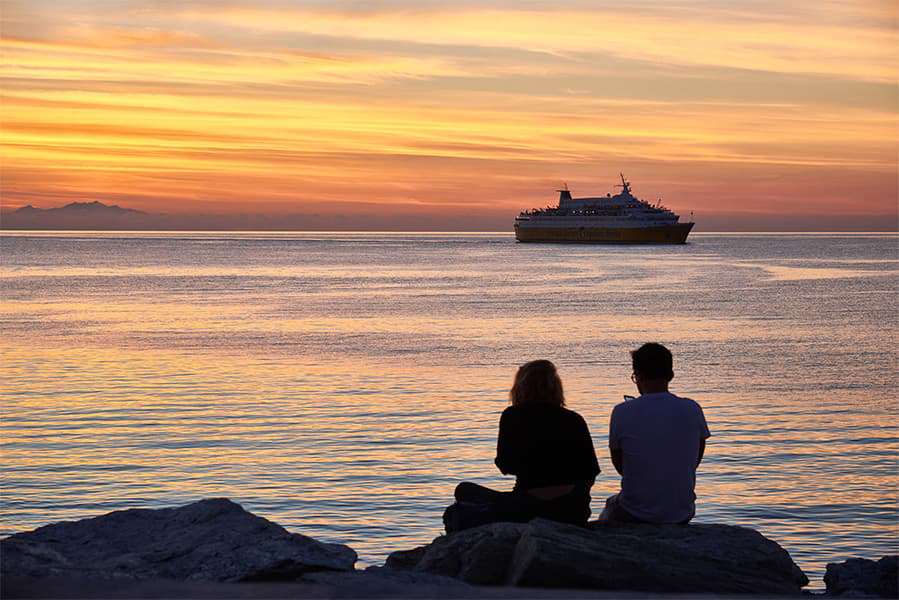Trapani - Ustica
Ferries to Ustica Island
Trapani - Ustica
Ferries to Ustica Island

At Direct Ferries we’re completely impartial and focused on helping you find the best fares on Trapani Ustica crossings between Sicily and Ustica Island quickly and easily.
Use our Trapani Ustica ferry guide to find out all you need to know in order to book your ferry trip to Ustica Island including who sails on the Trapani Ustica route and if there are any other crossings on offer.
It’s quick and easy to get a ferry price! Simply select your place of departure from the Fare Search, Trapani Ustica from the route menu, number of people travelling and then just hit search.
More routes than anyone else.

Compare fares, times & routes in one place.
Change plans easily with flexi tickets.

Book e-tickets & manage trips in-app.
Live ship tracking & real-time updates.

Top-rated customer support when you need it.
Trapani is a city in the west coast of Sicily in Italy. It is the capital of the Province of Trapani. The ancient name of Trapani was Drépanon or Drepana, the Greek word for "sickle", because of the shape of its harbour which curves out into the Mediterranean Sea. The city was built to serve as port of the nearby city of Erice (Eryx), which overlooks it from Monte San Giuliano. Two ancient legends tell of mythical origins for the city. In the first legend, Trapani stemmed from the sickle fallen from the hands of the prosperity goddess Demetra while she was seeking for her daughter Persephone, who had been kidnapped by Hades. The second myth features Saturn, god of the sky, who eviscerated his father Chronos with a sickle which, falling into the sea, created the city. In ancient times Saturn was the god-protector of the Trapani. Today Saturn's statue stands in a piazza in the centre of the city.
Ustica is an island in the Tyrrhenian Sea, 32 miles north of Capo Gallo, Italy. The island is connected to Palermo by regular ferry and hydrofoil services. The tiny volcanic island of Ustica has a length of only 6 miles across and is the summit of a large submerged volcano. As a reflection to both the island’s origin and the blackness of its lava, the name Ustica derives from the Latin word Ustum meaning ‘burnt’. The main town on the island can be reached from a single road leading up to various flights of steps. Here you will see the peculiar local houses with their external walls all painted with unique murals of landscapes, portraits and much more. The island has a jagged coastline which shelters a range of wonderful caves, bays and creeks. Another feature of the island’s volcanic origin is its relatively deep dives which makes Ustica a perfect place for scuba diving.